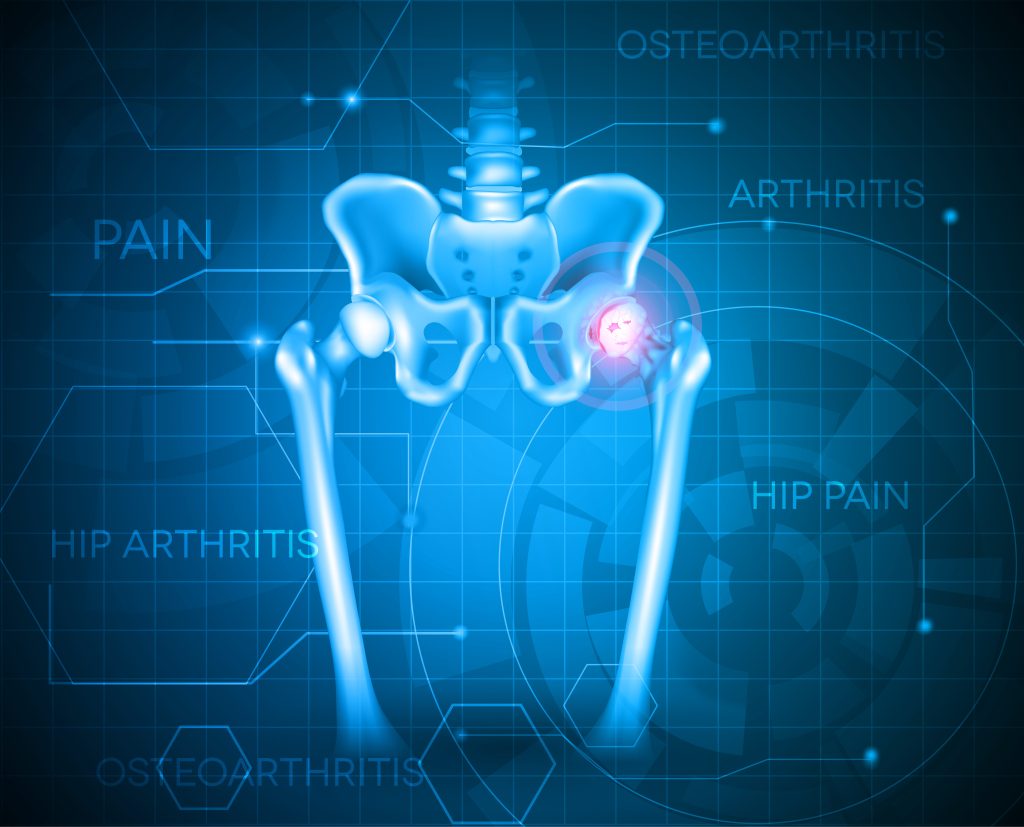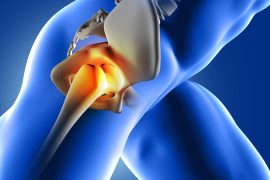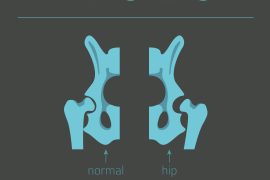Nutrients for Joint Health
When it comes to managing hip osteoarthritis, certain nutrients have been identified to be particularly beneficial in promoting joint health and reducing inflammation.
- Omega-3 Fatty Acids: These anti-inflammatory properties might help alleviate hip joint pain and stiffness. One commonly recognized benefit of consuming these healthy fats is their ability to decrease the generation of inflammatory compounds within the body, thereby relieving individuals with hip osteoarthritis.
- Vitamin D: This is essential for maintaining bone health. Research suggests vitamin D deficiency may be linked to an increased risk of hip osteoarthritis. Sunlight is one of the best sources of vitamin D, and its role in managing bone health cannot be ignored. Vitamin D can be obtained through foods like fortified dairy products, egg yolks, and fatty fish.
- Antioxidants: Antioxidants are crucial in reducing oxidative stress and inflammation in the body. Antioxidant-rich food help protect the joints from damage caused by free radicals. Including many fruits and vegetables in your diet will provide a wide range of antioxidants beneficial for joint health.
Foods to Eat and Avoid for Hip Osteoarthritis
While certain foods can promote joint health, others can worsen hip osteoarthritis symptoms. Here are some dietary recommendations for individuals with hip osteoarthritis:
- Fatty Fish: Add fatty fish like salmon, mackerel, and tuna to your diet for omega-3 fatty acids. They can help reduce inflammation and relieve hip joint pain.
- Leafy Greens and Berries: Include a variety of leafy greens, such as kale, spinach, and collard greens, as well as berries and cherries in your meals. These are antioxidant-rich vegetables and fruits. They provide essential vitamins and minerals that support joint health.
- Turmeric: This golden spice contains curcumin, known for its anti-inflammatory properties. Adding turmeric to your dishes or consuming it as a supplement may help reduce hip joint pain and stiffness.
- Whole Grains: Always go for grains like quinoa, brown rice, and whole wheat bread over refined grains. Whole grains contain fibre, which has been known to affect reducing the levels of inflammation in the body positively.
Foods to Avoid
Limiting or avoiding certain foods that can exacerbate hip osteoarthritis symptoms is important. For example, processed snacks, sugary drinks, and foods high in saturated fats should be minimised as they can contribute to inflammation and worsen hip joint pain and discomfort.
Conclusion
While diet cannot cure hip osteoarthritis, conscious choices about our foods can significantly impact symptom management and overall joint health. By incorporating nutrient-rich foods like fatty fish, leafy greens, and turmeric, individuals with hip osteoarthritis can provide their bodies with the necessary building blocks for joint repair and reduce inflammation.
FAQs
Q: Can diet make a difference in managing hip osteoarthritis?
A: Absolutely! While diet alone cannot cure hip osteoarthritis, it is recognised to play a vital role in managing the symptoms and potentially slowing down the progression of the disease. In addition, certain nutrients and foods have been found to have anti-inflammatory properties and promote joint health, which can alleviate pain and stiffness associated with hip osteoarthritis.
Q: Which nutrients are beneficial for individuals with hip osteoarthritis?
A: Several nutrients have been identified as beneficial for individuals with hip osteoarthritis. Omega-3 fatty acids in chia seeds, fatty fish, and walnuts have anti-inflammatory properties. Vitamin D, obtained through sunlight or foods like fortified dairy products and fatty fish, is crucial for maintaining bone health. Antioxidants in berries, spinach, kale, and broccoli help protect the joints from oxidative stress and inflammation.
Q: Are there any foods I should avoid if I have hip osteoarthritis?
A: Certain foods should be limited or avoided if you have hip osteoarthritis. Processed snacks, sugary drinks, and food rich in saturated fats may cause inflammation and worsen hip joint pain and discomfort. Additionally, some individuals may find that nightshade vegetables like tomatoes, peppers, and eggplants trigger inflammation, so observing any personal sensitivities to these foods may be worth observing.





Comments are closed.